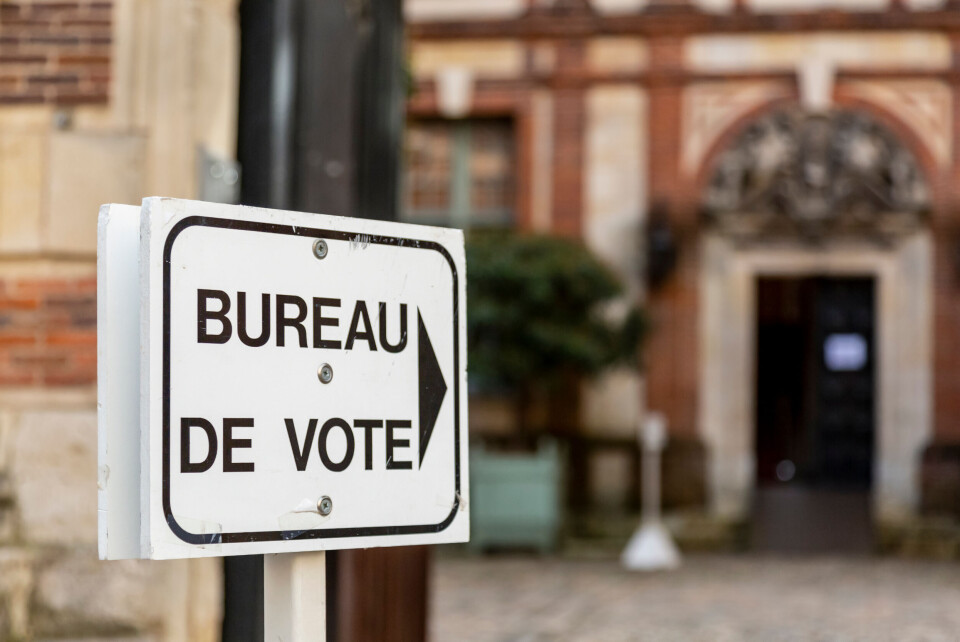-
French prosecutors call to make Le Pen ineligible in 2027 election
The sentence depends on if the court agrees, and how it would hand down the ruling if so
-
‘Marine Le Pen will be the woman to beat in 2027 French election’
As Marine Le Pen is replaced by Jordan Bardella as president of her Rassemblement National party, this does not mean she will be taking a step back, says Simon Heffer
-
French election votes annulled as cast in church confession box
It was judged that the location ‘undermined the freedom’ of the vote in the tiny village. A former candidate also caused the same issue by publicly announcing that he was not voting
When will we know the results of France’s presidential election?
The first round of voting takes place on Sunday, April 10 between 08:00 and 19:00 in most places and the second two weeks later

Reader question: When will the results of France’s presidential election be made public?
The first round of voting will take place on Sunday, April 10, with voting stations open between 08:00 and 19:00 (in some places it can be extended to 20:00).
The second round - if required, which it almost definitely will be - is set to take place on April 24.
You can check the time your voting station is open until, and also verify your electoral status at this link here.
In France, media are forbidden from sharing early election counts before all voting stations are closed, meaning before 20:00.
It means that you will not get predictions from French media before this time. Foreign media, such as Belgian outlets, do often share early predictions.
From 20:00, estimations will start being published in France on online news sites, TV and radio channels.
These are based on ongoing counts at around 250 different polling stations around the country selected to represent the wider population.
As the night goes on, the predictions will become more accurate as more votes are counted.
The official results will be shared the following day.
Although official media outlets cannot share early election counts, unofficial sources (social media and blogs, for example) can.
Normally, throughout the day when voting takes place, results filter through to polling institutes. Although they do not officially publish these results, leaks often occur and are shared on social media.
It means that if you pay attention to Twitter or Facebook you will most probably see counts as early as the middle of the afternoon on Sunday.
However, these results are very unreliable and more accurate counts will come as the day goes on.
Humorous Twitter page bypasses 20:00 results rule
Radio Londres, a satirical Twitter page, has since the 2012 presidential election been using early leaks to post humorous insights into the election count, using comedy to imply which candidates are doing well or poorly.
The name is based on Radio Londres, a French-language radio station broadcast from 1940 to 1944 by the BBC in London to Nazi-occupied France.
The broadcast usually included obscure coded phrases that were seemingly nonsense, such as “Jean has a long moustache”, that carried secret messages to allied agents in the field.
Read more:Radio Londres kept us going in the war
The modern Twitter page with the same name also uses coded messages to report on election results before 20:00, bypassing the ban.
For example, in 2017 when Marine Le Pen faced off against Emmanuel Macron in the second round, Radio Londres posted: “Les penne sentent le cramé. Je répète : les penne sentent le cramé,” which translates to “The penne (pasta) smells burnt. I repeat, the penne smells burnt”.
Or, “Sur radio Genève, 63% des français ont acheté depuis ce matin des Macarons, La tarte tricolore ne se vend pas bien”, meaning, “On Radio Geneva, 63% of French people have bought Macaroons since this morning, the tricolour pie is not selling well”.
Related articles
Signatures, power transfer: key dates for French presidential election
‘When I am president’: The key policies of final 12 French candidates
























